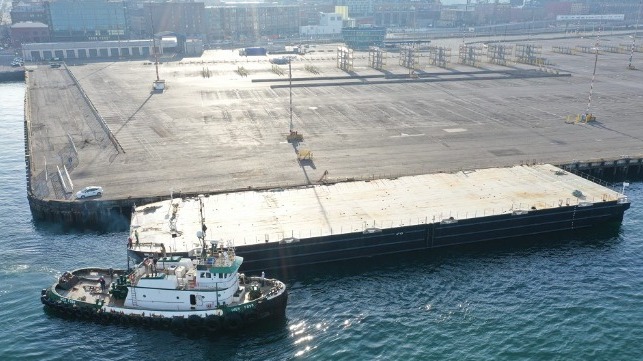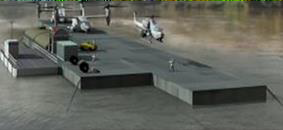Sea Machines, Foss to Develop Unmanned Refueling Barge for DOD

Under a new contract with the Department of Defense's Defense Innovation Unit, vessel autonomy company Sea Machines Robotics and Foss Maritime will be developing a system to turn a commercial barge into an autonomous Forward Arming and Refueling Point (FARP) for military helicopters and other assets.
For the trial, Foss will provide naval architecture, support engineering and operations management to outfit a remotely-controlled deck barge that can land helicopters and host a "scaled fueling station for aircraft, surface vessels and shore replenishment." Sea Machines will engineer, build and demonstrate ready-to-deploy system kits that "enable autonomous, self-propelled operation of opportunistically available barges to land and replenish military aircraft." Bell Flight and Huntington Ingalls Industries are also partnering on the project, and Sea Machines is the lead contractor.
“[These] autonomous replenishment systems will solve critical logistics challenges of expeditionary missions. We are pleased to enable this innovative capability, which will increase the effectiveness and flexibility for the U.S. military,” said Sea Machines director of sales Phil Bourque.
In addition to the development phase, the contract includes an option to deploy similar kits in an operational role.
The FARP self-propelled landing barge is conceptually comparable to SpaceX's landing barges, which began life as commercial deck barges before they were permanently fitted with thrusters and DP stationkeeping systems. (SpaceX refers to these vessels as "drone ships.") The DOD FARP concept adds conversion system modularity, along with military-specific refueling and rearming capability.
FARP is a component of the DOD Resilient Expeditionary Agile Littoral Logistics (REALL) project. REALL is intended to provide "end-to-end receipt, storage, and supply of fuel and other critical materials from littoral (shallow water) platforms," according to U.S. Transportation Command.

As an unmanned platform, REALL (illustration above) is intended to address concerns about the vulnerability of manned logistics vessels in a contested environment, and it is a supporting element for the Marine Corps' Expeditionary Advanced Base Operations (EABO) operating concept.
